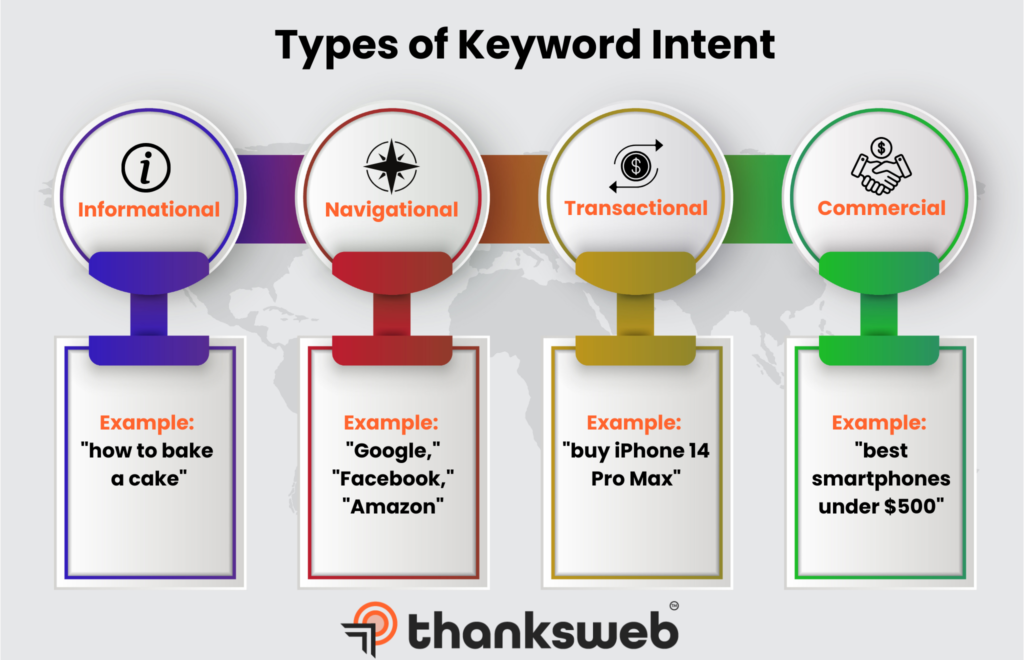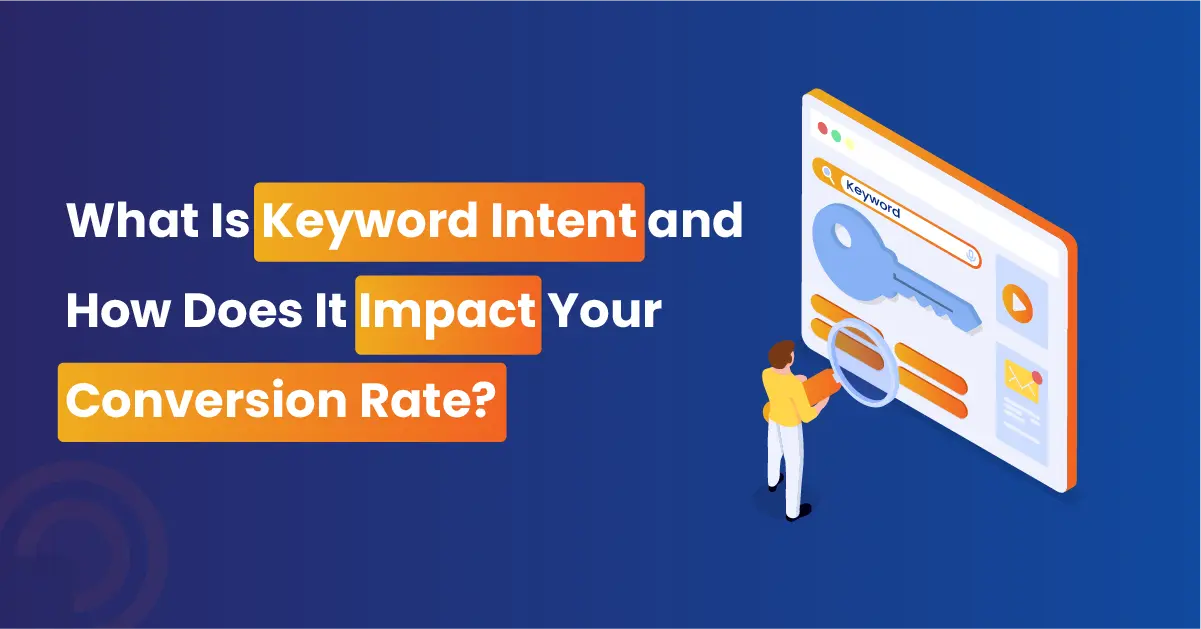What is currently standing in the way of marketers today is the drive of traffic and increased conversion to boost the business. Understanding your audience is multi-faceted, but perhaps one of the most crucial factors is keyword intent. In this blog, we will delve into what keyword intent is, the kinds of it, and really how it impacts your conversion rates.
What is Keyword Intent?
Keyword intent also referred to as search intent, is what lies behind a user’s intention in a search query. It answers the question of what the user wants to get out of their search. Knowing keyword intent will let marketers create content and devise strategies that best satisfy their potential customers’ needs.
Types of Keyword Intent in SEO
The 4 types of keyword intent are commercial intent, Informational intent, Transactional intent, and Navigational intent.

1. Informational Keyword Intent
In this case, the user wants to attain information or find a solution to a problem. For example, for which type of query there is an existence of search like “How to create a blog” and “Why yoga is necessary?” Often the content holds an article guide or sometimes videos on the same subject.
2. Navigational Keyword Intent
Users are searching for a particular website or page. For example, if the user types “Facebook login,” he is trying to get straight to the login page on Facebook. Optimizing for navigational intent often is more about making sure your brand is front and center in search results.
3. Transactional Keyword Intent
Users want to purchase or take a desired action. The keywords “buy running shoes online” or “best deals on laptops” indicate that the user is ready to convert. Focus on transactional keywords is quality traffic that can be converted.
4. Commercial Keyword Research
They will look to buy a specific product or service shortly. The sample keywords for such situations might be “best smartphones 2024” or “top vacuum cleaners for home,” because they were comparing all their options for it. Hence, this will enable giving them reviews, comparisons, and additional information in order to decide on it finally.
You can also read: Keyword Research for SEO
How Does Keyword Intent Affect Your Conversion Rate?
It says that the keyword intent that is, aligning content with it is one factor that heavily influences conversion rates. Here’s how that happens:
1. Targeted Audience
This means that with keyword intent, you will be developing content that will directly inform the users’ needs. When people find what they look for in your site, they’ll engage more and therefore the chances of those desirable actions are higher; hence conversions will increase.
2. Relevant Content
It matches the content intended for the users and tends to rank better in search results. Google itself promotes good and relevant content, so where the content matches up, it ranks better. That way, the traffic does not just come alone: when you are placing a higher number of clicks with intent, then these conversations happen along.
3. Enhancement of User Experience
When users gain access to something of value in the minimum amount of time, an overall improved experience is built. By understanding intent through keywords, you can help guide the user flow and lead them through a decision, ultimately converting.
4. Optimize Landing Page
For the accomplishment of those objectives, it is essential to have optimized landing pages with all the intentions put together by the visitors when transactional is concerned. A well-crafted landing page with all the questions customers have by the proper use of clear calls of action, coupled with other benefits, definitely does result in increased conversion.
5. A/B Testing and Refining
Keyword intent analysis can make it possible to run A/B testing on all kinds of content and calls to action. This is going to refine your approach according to what best suits your audience, and you are going to be optimizing over time to attain the highest conversion rates.
Conclusion
Keyword intent is one of the most powerful tools that you have in your digital marketing arsenal. By targeting content to the specific needs and motivations of the target audience, you can improve the user experience, maximize the effectiveness of your SEO, and move toward more conversions. You might be writing blogs or optimizing product pages. Use keyword intent as your central strategy in marketing campaign development and you will be perfectly aligned with your audience for successful conversion.

